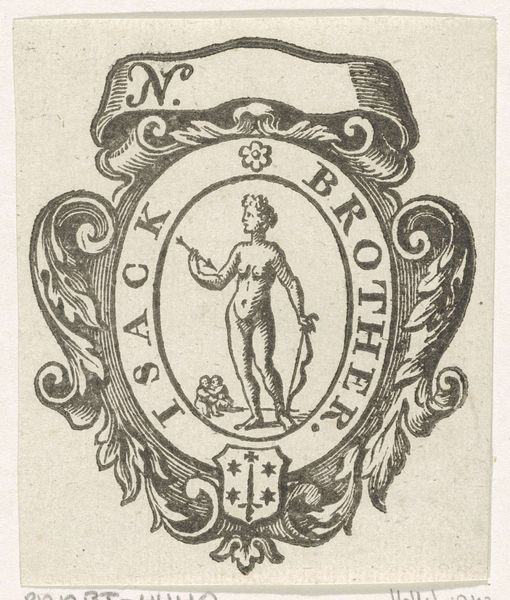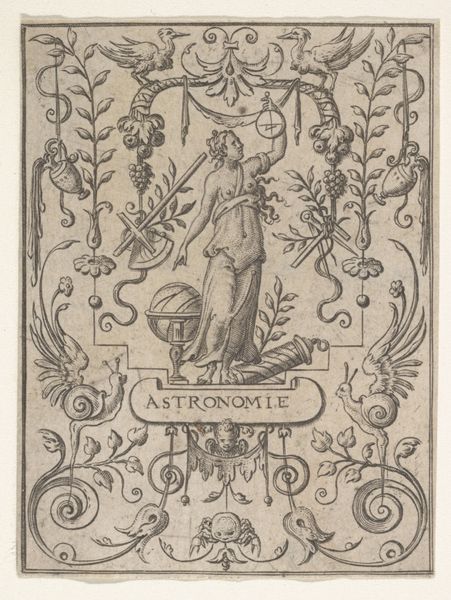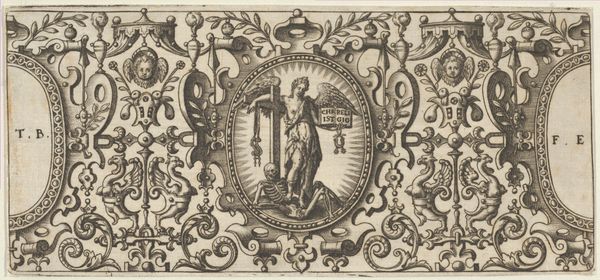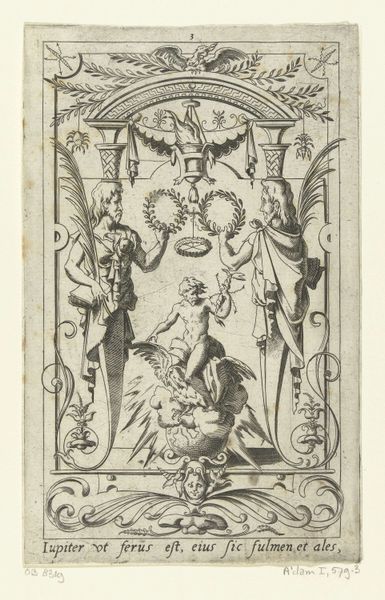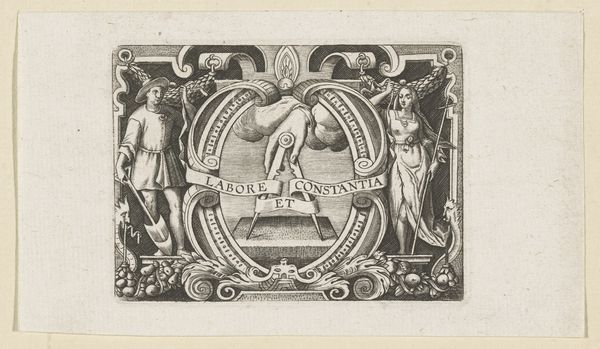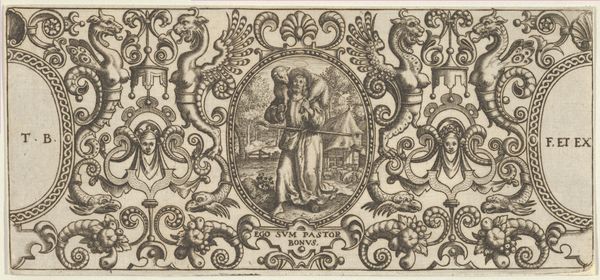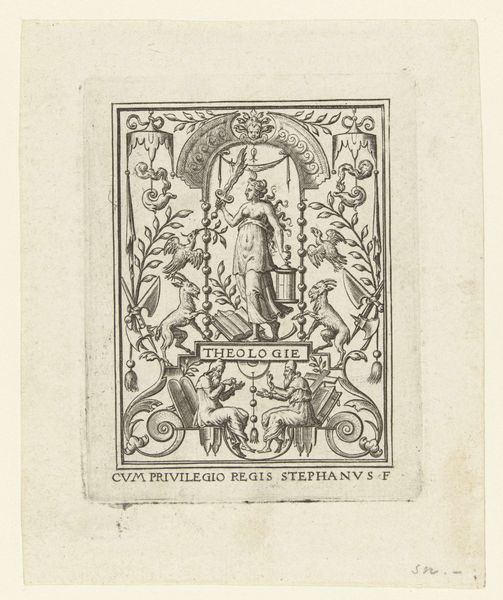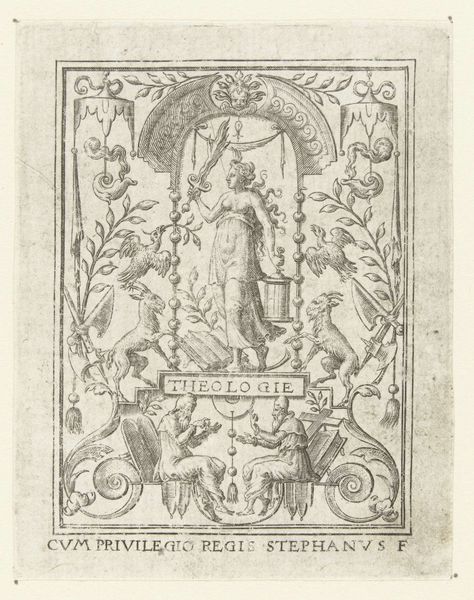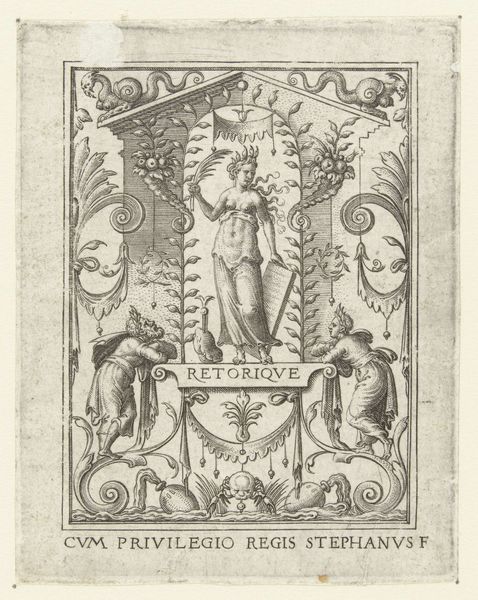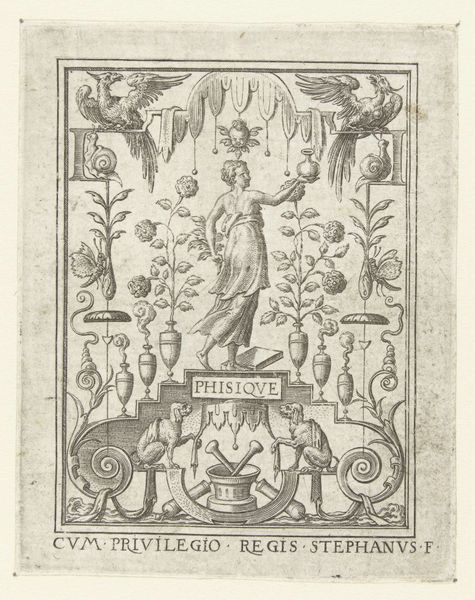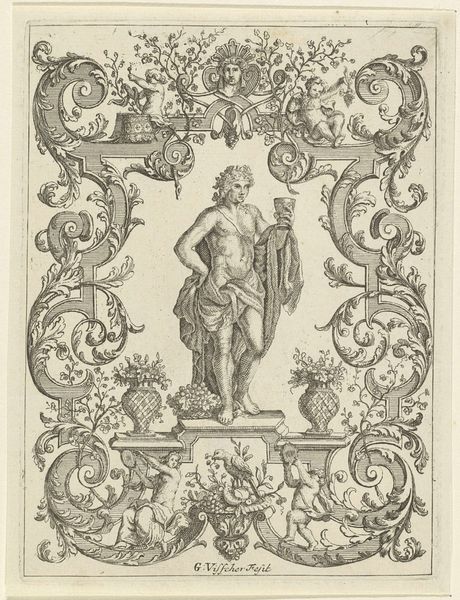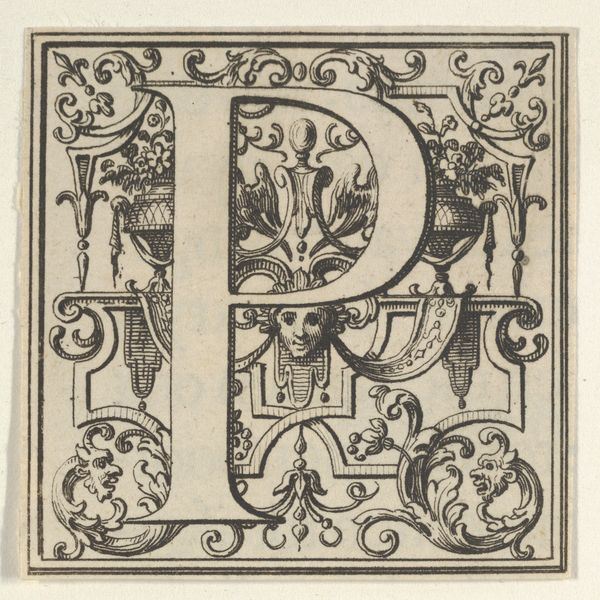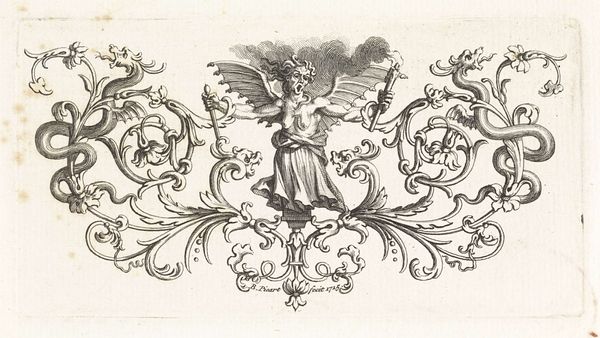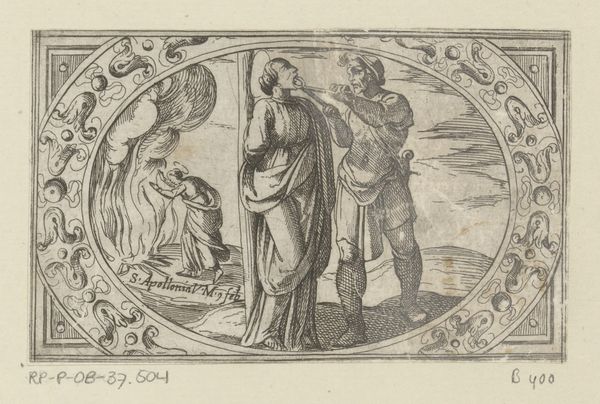
drawing, ink
#
portrait
#
drawing
#
baroque
#
pen drawing
#
pen illustration
#
pen sketch
#
figuration
#
personal sketchbook
#
ink
#
ink drawing experimentation
#
pen-ink sketch
#
line
#
pen work
#
sketchbook drawing
#
genre-painting
#
sketchbook art
#
doodle art
Dimensions: height 76 mm, width 99 mm
Copyright: Rijks Museum: Open Domain
Editor: This ink drawing, “Handelsmerk van een fabriek,” or “Trademark of a Factory” by Dirck de Bray, dating from between 1635 and 1694, presents a woman encircled by symbolic objects. It feels very deliberate and rich in meaning, although much of it eludes me. What symbols strike you as significant? Curator: Notice how the figure, likely an allegory, stands centered, almost goddess-like, holding both a bird, perhaps a heron or stork, and flowers. Birds often carry multifaceted symbolism – the soul's journey, messengers, even omens depending on cultural context. Are we meant to consider purity or vigilance here, given the factory trademark context? Editor: Vigilance, maybe? Factories need watching, right? But purity? Curator: Consider the flowers, and what lies beyond the oval – what do those objects mean to you? The column and book contrast with the equestrian scene, which, set against the suggestion of cloth or canvas, hints at artistic production itself. Editor: The juxtaposition makes it almost like… different trades represented together? Learning and craftsmanship? Curator: Exactly! This combination speaks to a comprehensive approach, blending intellectual pursuit with practical application. Perhaps the trademark signified quality, integrity, and a broad range of capabilities. The heron and flowers would represent prosperity and beauty flourishing from their work. What are your impressions of this in connection to modern-day company logos? Editor: That's fascinating! It really places value on this factory that I hadn't seen before. It’s much more complex than just a logo – it is a statement of intent, of a world view almost. Curator: Yes, by understanding these layers, we touch cultural memory—linking this image to concepts of progress, craft, and even moral obligation within the early manufacturing world. Editor: I learned a lot about how artists convey a holistic message. It changed my perspective. Curator: Indeed; artworks like this teach us to value not only the aesthetic, but the underlying stories they wish to convey.
Comments
No comments
Be the first to comment and join the conversation on the ultimate creative platform.
